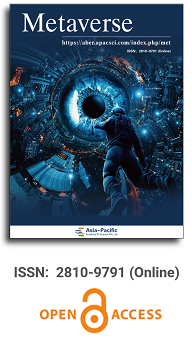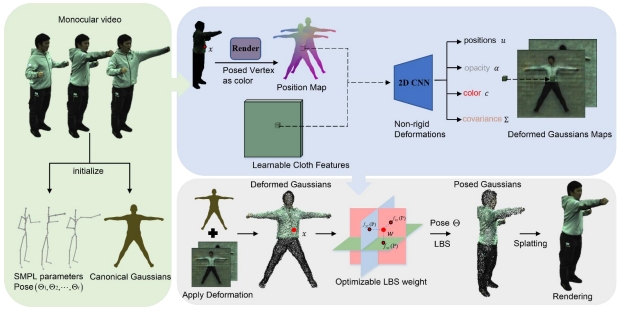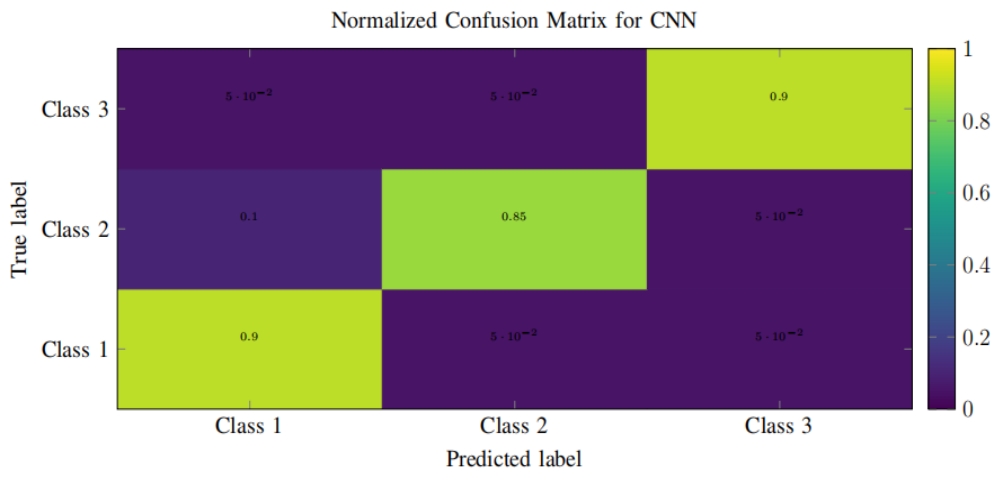
Asia Pacific Academy of Science Pte. Ltd. (APACSCI) specializes in international journal publishing. APACSCI adopts the open access publishing model and provides an important communication bridge for academic groups whose interest fields include engineering, technology, medicine, computer, mathematics, agriculture and forestry, and environment.



The concept of Metaverse and the series of issues it triggers involve many disciplines, such as philosophy, economics, art, information management, intelligent technology, and blockchain. The exploration of Metaverse by scientific researchers and industrial practitioners continues to stimulate the vitality of discipline construction and accelerate the cultivation of cross-disciplinary talents and technical exchanges in the field. Based on this, Editorial Office of Metaverse carries out "Expert Interviews", inviting international experts in the field from time to time to provide practitioners with exchanges and advice, and welcomes readers to ask interview questions, and we will invite experts to answer them. In this issue, we are honored to invite Dr. Gupta to share some views on the Metaverse industry and science research. Q1. What are your research interests? Dr. Gupta: My research interests are in the field of Artificial Intelligence (AI) technology and its application to the Metaverse. Below is an example of a research interest statement in this area: I am fascinated by the possibilities that arise from combining Artificial Intelligence (AI) technology with the Metaverse to create intelligent experiences. With the increasing popularity of augmented reality and mixed reality technologies, we have an opportunity to utilize AI for enhancing user interactions, generating intelligent content and delivering personalized experiences. One particular aspect that intrigues me is developing AI algorithms and models of comprehending, interpreting and responding to user actions and preferences within the Metaverse. This involves leveraging language processing and computer vision techniques to enable avatar interactions, context aware recommendation systems as well as adaptive content generation based on user behavior. Additionally, I intend to explore the implications and challenges associated with integrating AI into the Metaverse. These include concerns about privacy issues, algorithmic biases as ensuring inclusivity and diversity within virtual environments. By addressing these matters, my aim is to contribute towards the development and responsible deployment of AI technologies in the Metaverse. In my research, I aim to explore the prospects of integrating AI technology into the Metaverse. My goal is to create experiences that are more immersive and intelligent, benefiting individuals and communities alike. By bridging AI with the Metaverse, I hope to uncover opportunities, in areas such as entertainment, education, communication and beyond. Q2. As a researcher, what do you think the Metaverse should be studied in the academic field?
Dr. Gupta: The idea of the Metaverse has become quite popular lately. It represents a virtual reality realm where people can engage with a computer-generated environment and interact with users in time. When it comes to studying the Metaverse, it encompasses facets such as social, technological, ethical and economic dimensions. This involves examining its impact on society, analyzing the advancements in virtual reality technology, considering implications and exploring the economic opportunities and challenges that arise from it. Q3. Some people think that the Metaverse is more about advances in technology than the concept, what metaverse technologies do you think are in dire need of advancement? Dr. Gupta: The evolution of technologies encompasses aspects and there are several areas that could benefit from further development. Here are a few key areas that could see improvements: Virtual Reality (VR) Hardware: Enhancements in VR headsets, controllers and haptic feedback devices have the potential to enrich the experience and make it more comfortable and accessible for a range of users. Network Infrastructure: To ensure an interconnected metaverse, we need network infrastructure with high bandwidth, low latency and widespread availability. This will enable interactions and real time communication. Artificial Intelligence (AI): AI technologies can play a role in the metaverse by enabling realistic virtual environments, intelligent virtual entities, natural language understanding and personalized immersive experiences tailored to individual users. User Interface and Interactions: It is essential to develop intuitive and user-friendly interfaces for navigating and interacting within the metaverse. Advancements in recognition of voice commands and other innovative forms of input will contribute to this goal. Platform Compatibility: Achieving compatibility and interoperability between different metaverse platforms and devices is vital for creating a unified experience across various hardware and software ecosystems. These areas represent points where advancements can drive the development of the metaverse towards greater accessibility, interactivity, realism, and user friendliness, while fostering cross platform collaboration. It is crucial to understand that the idea of the metaverse goes beyond technology. It also includes cultural and economic elements. The progress made in these areas can greatly impact the growth and transformation of the metaverse. Q4. What do you think are the similarities and differences of Metaverse technology studied between academic research and corporate research? Dr. Gupta: While there may be some overlap between research and corporate initiatives in exploring technology, there are notable similarities and differences between the two: Similarities: Focus on Technological Advancements: Both academic research and corporate endeavors in the realm of the metaverse share a common objective of advancing the underlying technologies that make the metaverse possible. This includes areas such as reality, augmented reality, artificial intelligence, networking and user interfaces. Interdisciplinary Approach: Both academia and corporations acknowledge that metaverse technology necessitates approaches by bringing together expertise from fields such as computer science, human computer interaction, psychology, sociology, economics and more. Collaborating across disciplines is essential for research and development. User Experience and Interaction: Both academia and corporations recognize the significance of user experience and interaction within the metaverse. They strive to create intuitive and captivating experiences for users by focusing on aspects like presence (feeling like you're really there), embodiment (feeling connected to your avatar or digital self), feedback (sensory touch experiences), and natural language understanding.
Differences: Funding and Resources: Corporate initiatives often have access to resources and infrastructure compared to academic research. This allows corporations to invest in larger scale projects, hardware development and commercial applications. In contrast, academic research may rely heavily on grants provided by funding agencies or resources, within institutions. When it comes to the metaverse, academic research and corporate initiatives have focused and priorities. Academic research tends to put emphasis on studying aspects, societal implications and ethical considerations. On the other hand, corporate initiatives prioritize applications, commercial viability and market driven solutions. Another difference lies in how intellectual property and competitions perceived. Corporations often prioritize protecting their property as they face competition in the market. In contrast, academic research emphasizes knowledge sharing, collaboration and publishing in journals. Furthermore, academic research tends to take a long-term perspective by exploring visions of the metaverse and examining societal impacts. Corporate initiatives usually have goals tied to specific products, services or business strategies. In conclusion, although both academic research and corporate initiatives delve into metaverse technology exploration, their differences mainly arise from varying goals, resources availability and priorities. Collaboration between academia and industry can foster an exchange of knowledge that drives advancements in metaverse technology. Personal introduction Dr. Shashi Kant Gupta works as the Post-Doctoral Fellow in CSE of Eudoxia Research University, New Castle, USA. He has more than 13 years of experience in computers , and works as Editor-in-Chief of International Journal of Data Informatics and Intelligent computing (IJDIIC). Profiles: ORCID Profile: https://orcid.org/0000-0001-6587-5607 GOOGLE SCHOLAR Profile: https://scholar.google.com/citations?hl=en&user=YGvniSkAAAAJ RESEARCHGATE Profile: https://www.researchgate.net/profile/Shashi-Gupta-15 WOS Profile: https://www.webofscience.com/wos/author/record/GLR-0476-2022 SCOPUS Profile: https://www.scopus.com/authid/detail.uri?authorId=57461623200 |

Prof. Zhigeng Pan
Professor, Hangzhou International Innovation Institute (H3I), Beihang University, China

Prof. Jianrong Tan
Academician, Chinese Academy of Engineering, China
Conference Time
December 15-18, 2025
Conference Venue
Hong Kong Convention and Exhibition Center (HKCEC)
...
Metaverse Scientist Forum No.3 was successfully held on April 22, 2025, from 19:00 to 20:30 (Beijing Time)...
We received the Scopus notification on April 19th, confirming that the journal has been successfully indexed by Scopus...
We are pleased to announce that we have updated the requirements for manuscript figures in the submission guidelines. Manuscripts submitted after April 15, 2025 are required to strictly adhere to the change. These updates are aimed at ensuring the highest quality of visual content in our publications and enhancing the overall readability and impact of your research. For more details, please find it in sumissions...







.jpg)
.jpg)

